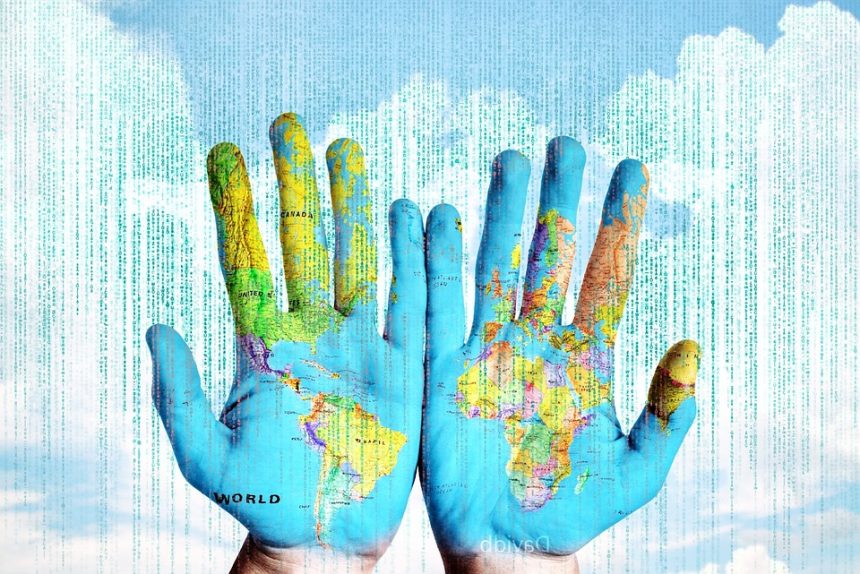The rapid advancement of technology often follows unexpected paths, and the convergence of artificial intelligence (AI) and blockchain is one such instance where synergistic potential is igniting innovation across multiple industries. While AI excels at processing large datasets and automating complex tasks, blockchain offers transparent, secure, and decentralized frameworks for data management. Together, they are poised to revolutionize the digital landscape.
Understanding AI and Blockchain
Before we dive into the trends that emerge from their intersection, it’s essential to grasp the fundamentals of both technologies:
Artificial Intelligence (AI)
AI refers to machine learning algorithms, neural networks, and various computational models that enable machines to mimic cognitive functions such as learning and problem-solving. It is used across diverse fields, from natural language processing to predictive analytics and robotics.
Blockchain
Blockchain is a distributed ledger technology (DLT) that records transactions across multiple computers in a manner that ensures the data cannot be altered retroactively. This technology is best known as the backbone of cryptocurrencies like Bitcoin but has applications far beyond digital currencies, encompassing supply chain management, identity verification, and more.
Key Trends at the Intersection of AI and Blockchain
1. Enhanced Data Security and Privacy
One primary benefit of combining AI with blockchain is the enhancement of data security. In an age where data breaches are increasingly common, blockchain can create a tamper-proof record of data transactions. By employing AI algorithms, organizations can automate identity verification processes while ensuring user privacy, as sensitive information can be stored on a blockchain rather than on centralized servers prone to hacking.
2. Decentralized AI Marketplaces
The integration of blockchain can facilitate decentralized platforms for data sharing and machine learning model training. This enables individuals and organizations to exchange data securely and transparently without relinquishing control over their sensitive information. For example, data providers can tokenize their data and monetize its use while retaining ownership and privacy, creating new revenue streams for both data donors and AI developers.
3. Improving AI Model Transparency
AI models are often termed "black boxes" due to their complex inner workings, making it challenging to interpret their decision-making processes. Blockchain can enhance transparency by creating immutable records of how AI models operate and the data they use. This not only fosters trust among users but also helps in regulatory compliance, which is particularly crucial in industries like finance and healthcare.
4. Streamlining Supply Chains
Blockchain’s ability to provide traceable, real-time data can enhance the efficiency of AI applications in supply chain management. AI-driven analytics can assess supply chain data processed through a blockchain network to predict trends, optimize inventories, and mitigate risks. The combination ensures that the data is accurate and verified, ultimately improving the efficiency and sustainability of supply chains.
5. AI-Driven Smart Contracts
Smart contracts, which automate transactions and agreements, are a significant feature of blockchain technology. By integrating AI with smart contracts, we can create more sophisticated agreements that can adapt based on real-time data analysis. AI can assess the conditions of contracts and execute them automatically when specific parameters are met, streamlining processes in finance, real estate, and other sectors.
6. Empowering Decentralized Finance (DeFi)
The DeFi space is witnessing innovative applications of both AI and blockchain. AI can analyze vast amounts of blockchain transaction data to predict market trends and optimize investment strategies. Conversely, blockchain provides a secure and transparent framework for executing those strategies, creating a seamless environment for decentralized trading, lending, and risk assessment.
7. Ethical AI and Blockchain Governance
As concerns about bias in AI models and ethical usage grow, combining AI with blockchain can introduce accountability measures. Blockchain can document the development and training processes of AI models, enabling audits and enhancing ethical practices by ensuring that decision-making algorithms are free from biases.
Challenges to Address
Despite their immense potential, the convergence of AI and blockchain is not without challenges. Scalability, interoperability, and the high computational power required for both technologies pose hurdles to widespread adoption. Additionally, there are concerns surrounding energy consumption, particularly with blockchain technologies like Proof of Work, and ensuring that AI’s decision-making processes remain fair and unbiased.
Conclusion
The intersection of AI and blockchain is reshaping numerous sectors and presenting remarkable opportunities for innovation. As these technologies continue to evolve and integrate, we can expect to see an array of applications that capitalize on their unique strengths—enhancing security, transparency, and efficiency in the digital ecosystem. While challenges remain, the collaboration between AI and blockchain is a testament to the relentless pursuit of advancements that can empower societies and drive progress. As we navigate this transformative landscape, one thing is clear: the future is a collaborative effort between intelligent systems and decentralized networks.





